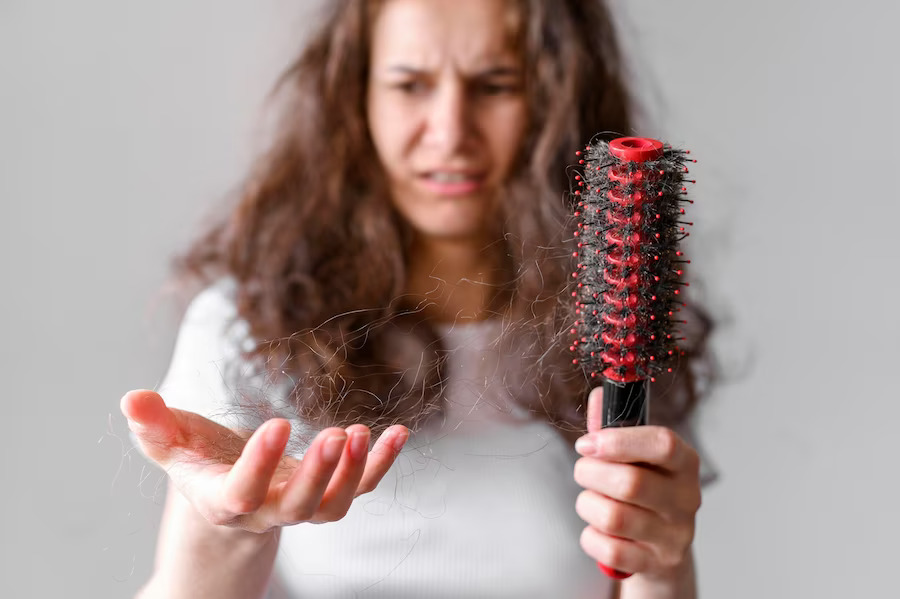Medical Treatment of Hair Loss

The medical treatment of hair loss depends on the underlying cause and type of hair loss. Here are some common medical treatment options:
Minoxidil: Minoxidil is an over-the-counter topical medication available in various strengths (2% for women and 5% for men) that is applied directly to the scalp. It is used to promote hair growth and slow down hair loss. Minoxidil is commonly recommended for androgenetic alopecia (male/female pattern baldness). It may take several months of regular use to see noticeable results, and it needs to be continued to maintain the benefits.
Finasteride: Finasteride is an oral medication available by prescription. It is primarily used to treat male pattern baldness. Finasteride works by inhibiting the conversion of testosterone to dihydrotestosterone (DHT), which is a hormone linked to hair loss. It can help slow down hair loss and stimulate hair regrowth in some individuals. Finasteride is generally not recommended for women of childbearing age due to potential risks to a developing fetus.
3. Dutasteride: Dutasteride is another oral medication used to treat hair loss, particularly in men. Like finasteride, it inhibits the conversion of testosterone to DHT. Dutasteride is sometimes prescribed when finasteride is ineffective or not well tolerated. It should also be used with caution in women of childbearing age.
4. Anti-androgen medications: In cases where hair loss is caused by excessive androgen activity (such as polycystic ovary syndrome or certain hormonal imbalances), anti-androgen medications may be prescribed. These medications help block the effects of androgens on the hair follicles.
5. Corticosteroids: Topical or injectable corticosteroids can be used for certain types of hair loss, such as alopecia areata or scarring alopecia. They help reduce inflammation and suppress the immune response that is attacking the hair follicles.
6. Platelet-Rich Plasma (PRP) therapy: PRP therapy involves injecting a concentration of the patient’s own platelets, derived from their blood, into the scalp. Platelets contain growth factors that can stimulate hair growth and improve hair density. PRP therapy is still an evolving treatment option, and its effectiveness may vary between individuals.

